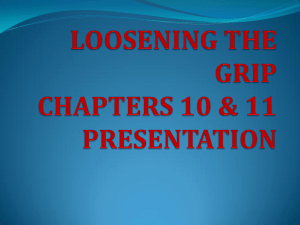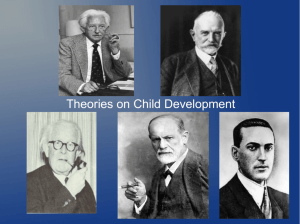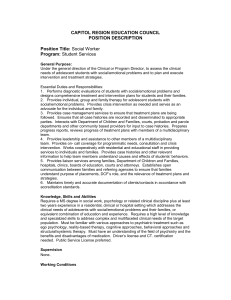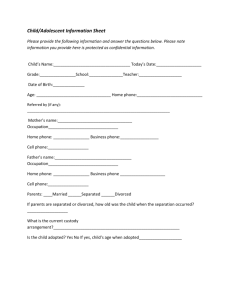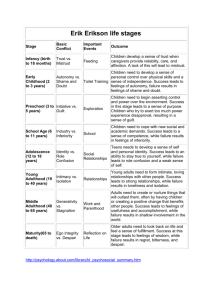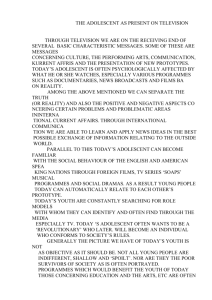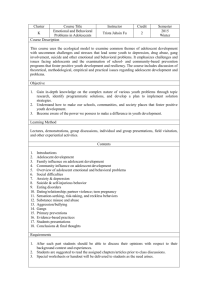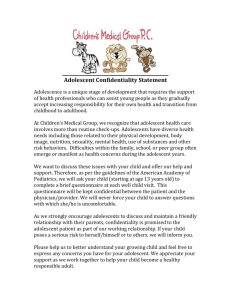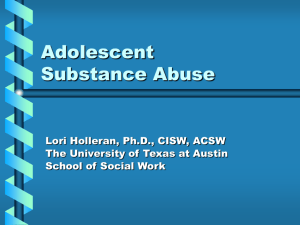Adolescent Psychology Study Questions - Chapter 4
advertisement
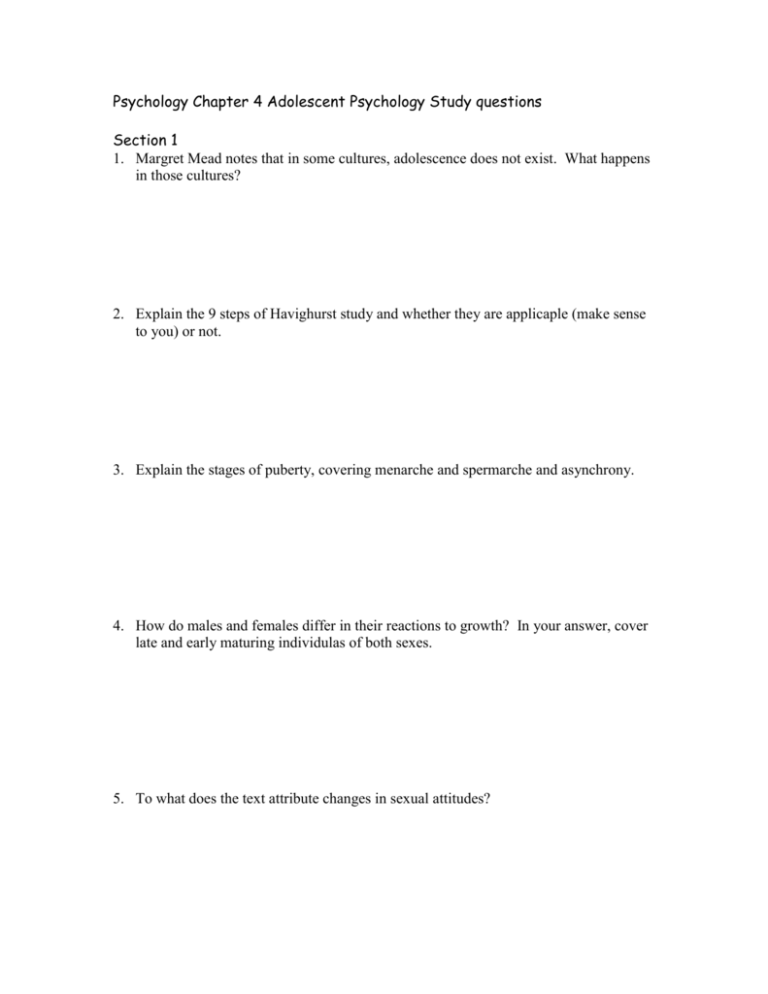
Psychology Chapter 4 Adolescent Psychology Study questions Section 1 1. Margret Mead notes that in some cultures, adolescence does not exist. What happens in those cultures? 2. Explain the 9 steps of Havighurst study and whether they are applicaple (make sense to you) or not. 3. Explain the stages of puberty, covering menarche and spermarche and asynchrony. 4. How do males and females differ in their reactions to growth? In your answer, cover late and early maturing individulas of both sexes. 5. To what does the text attribute changes in sexual attitudes? Section 2 1. What does Piaget think happens in adolescent cognitive development? 2. Explain the term rationalization and apply it to your life. Give an example of when you would rationalization. 3. Explain the six steps in the Elkind study and tell whether you agree or disagree with the findings and why. 4. We discussed Kohlberg last chapter. What does this chapter say about his theory. 5. Explain Erikson’s views of an identity crisis. Do we all go through one and explain why you think Erikson’s findings may or may not be accurate. 6. Explain the four components of Marcia’s Identy crisis theory and give an example of each. 7. What did Bandura and Mead discover about Social Learning theory as it applies to Adolescent psychology. Section 3 1. Explain the role of the family to an adolescent. 2. How does the role of one’s peers differ from the role of the family. 3. Explain a clique and give examples of them you have seen here at PTHS. 4. The books goes into many “difficulties” of the time period. Are these difficulties noted accurate or not? Also, explain the illusion of invulnerability. 5. The depression section is interesting. Why are more teens depressed today than in the past? 6. The eating disorder section is also interesting. Why do eating disorders affect more women than men? Section 4 1. What is the difference between gender role and gender identification? 2. What are the true gender stereotypes for your age group? 3. Is there a movement, as Sandra bem suggests, for mor ndrogynous roles between the sexes? Explain. 4. How does gender differences affect personality, intellect, and social skills? 5. Explain the differences between the various origins of gender differences. 6. As Gender roles change, do you think society has changed? Explain.



